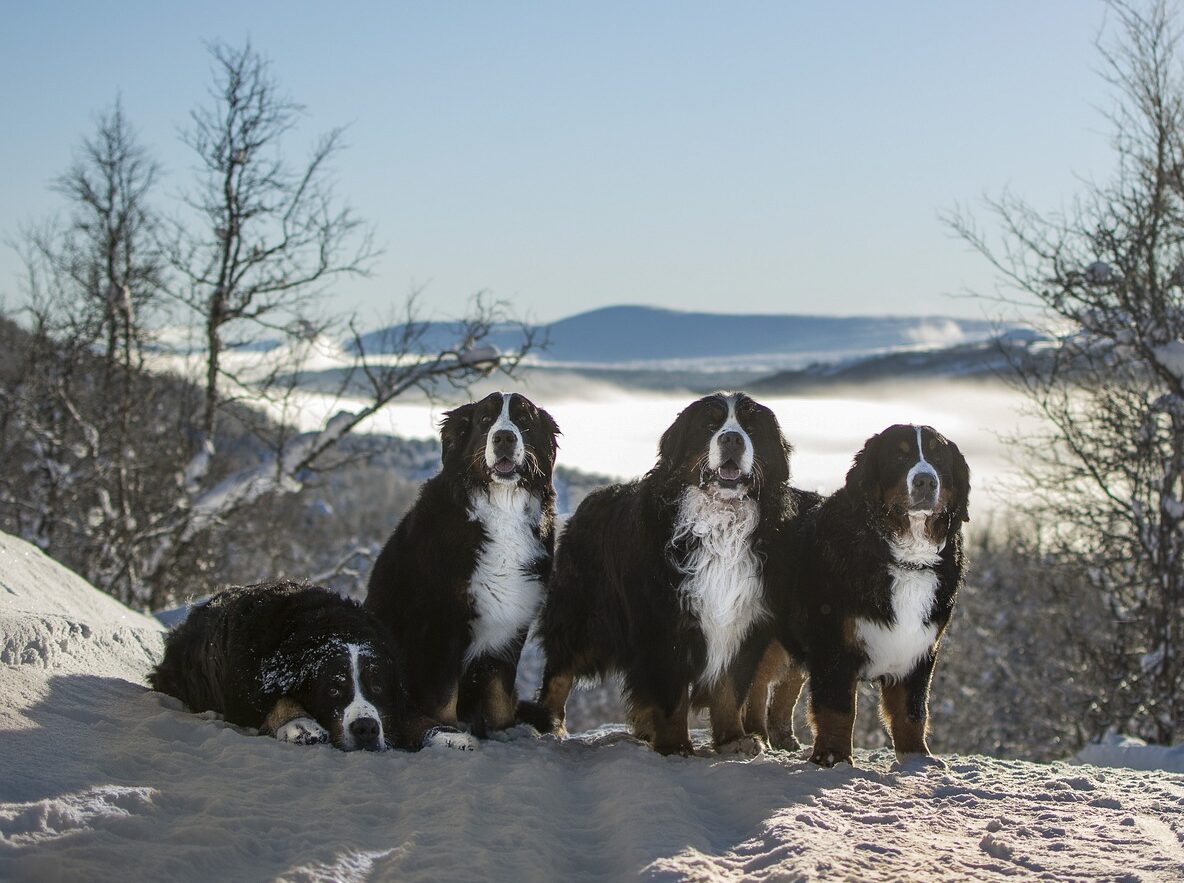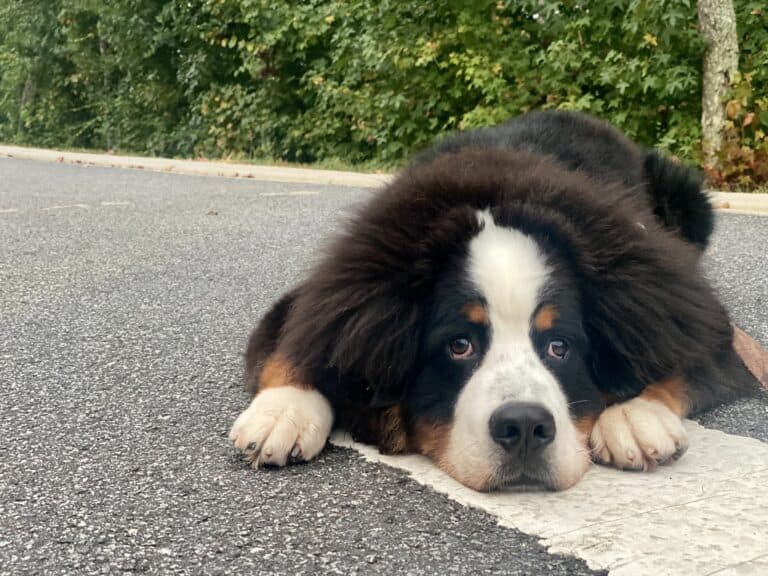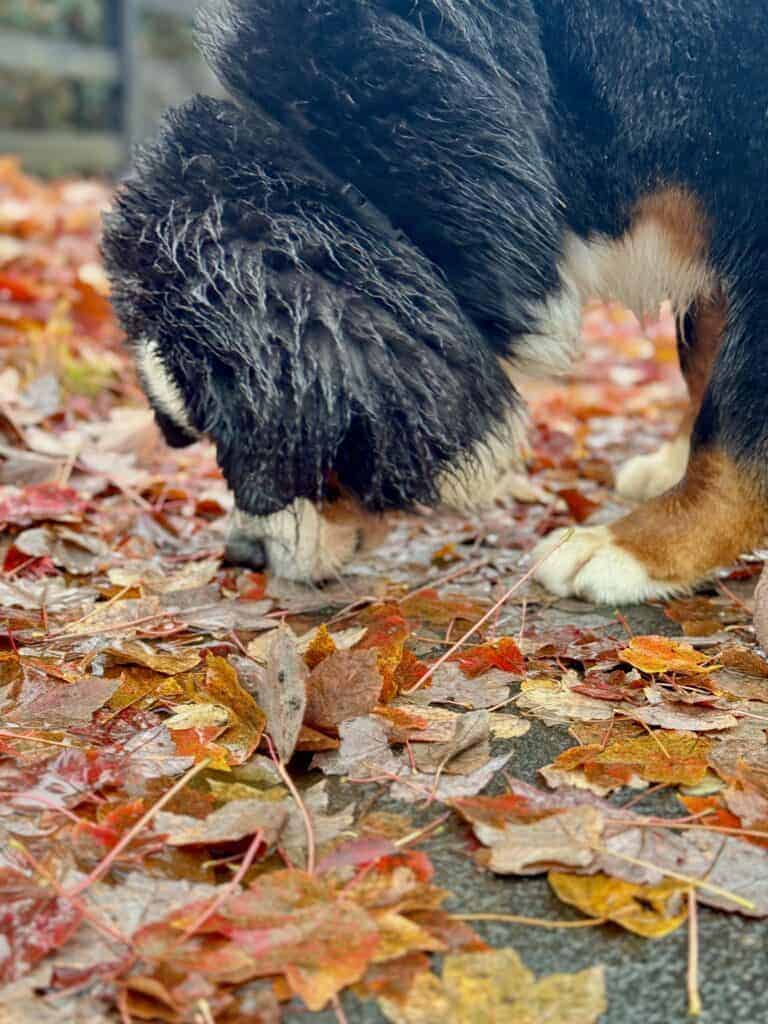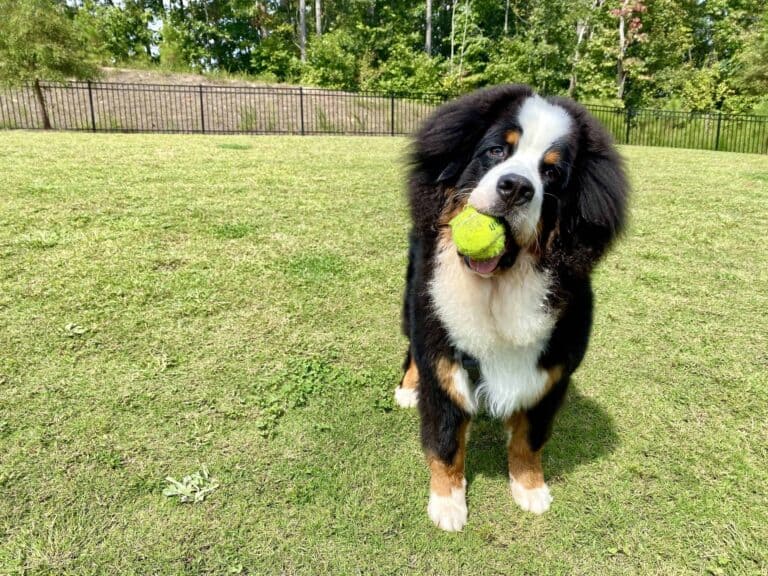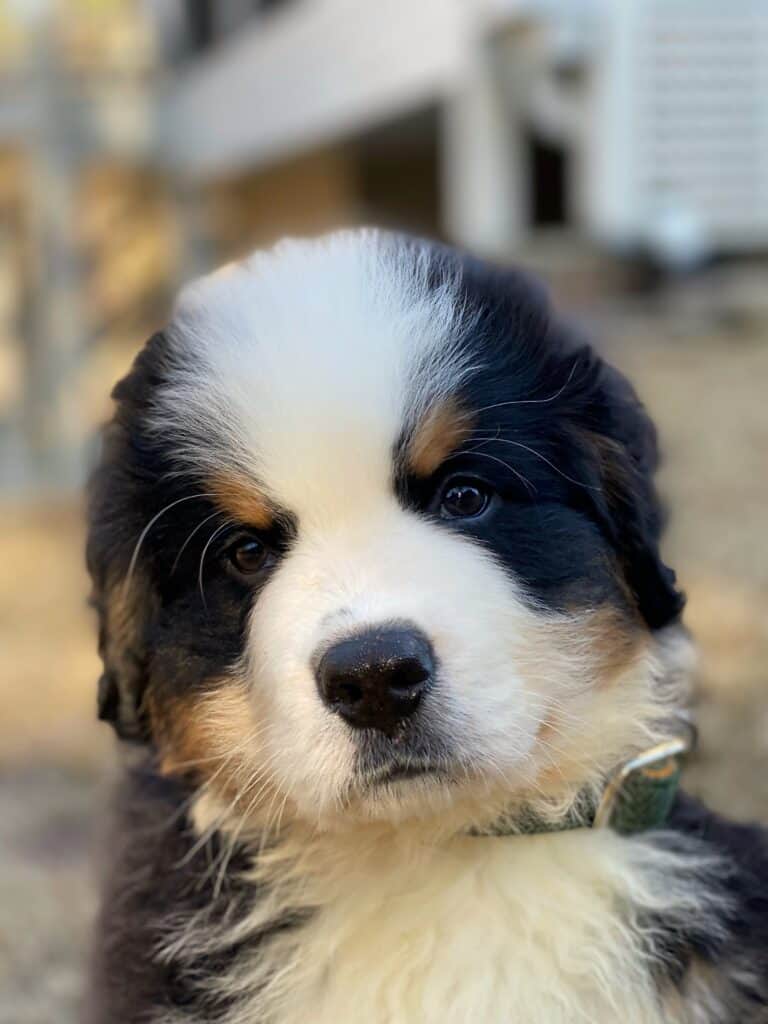30 Essential Facts about Bernese Mountain Dogs
Are you mesmerized by the stunningly beautiful Bernese Mountain Dog? Do you want to know more about these large and versatile family dogs?
Before we got Riggie, I devoured as much information as possible about the breed. We compiled 30 facts about Bernese Mountain Dogs that any fan of the “Berner,” as they are affectionately called, should know.
History of the Breed
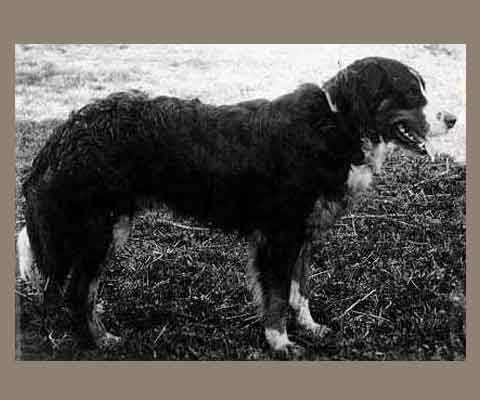
- Berner Sennenhund is German for Bernese Mountain Dog. You will see these terms used interchangeably. Sennenhund is derived from senne (alpine pasture) and hund (hound or dog).
- The Bernese Mountain Dog originated from the Canton of Bern in the Swiss Alps. They were bred from Roman Mastiffs which were brought to Switzerland by the Romans over 2,000 years ago. Once in Switzerland, they were then crossed with guard-type breeds.
- The Bernese is one of four varieties of tri-color Sennenhund-type, or Swiss Mountain Dog. The other 3 breeds are the Greater Swiss Mountain Dog, Appenzeller Mountain Dog, and Entlebucher Mountain Dog.
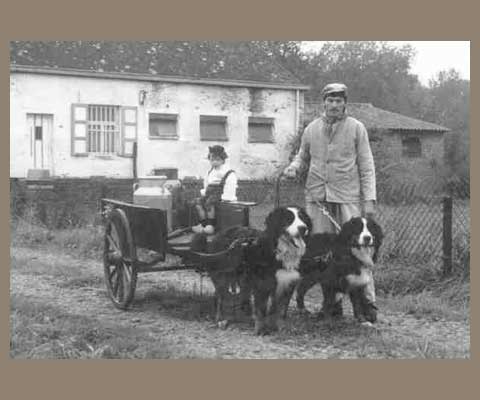
- Bernese were bred as all-purpose farm dogs. As farmers’ companions, they acted as alert-type watchdogs, drove cattle to pastures, and pulled carts of dairy products to market.
- The breed almost went extinct near the end of the 19th century. Due to the importation of other breeds into Switzerland and the development of farming technology, their population got dangerously low.
- Franz Schertenleib, a Swiss fancier, sought out good breeding stock specimens in 1892. He revived the breed and created an ideal standard for type and temperament.
- The Bernese Mountain Dog breed was officially established in 1912. The American Kennel Club first recognized the breed in 1937 and changed the breed standard in 1980 and 1990.
- The Bernese is a member of the Working Group. They are the 22nd most popular breed in the United States according to the 2022 AKC breed registry.
Breed Standard
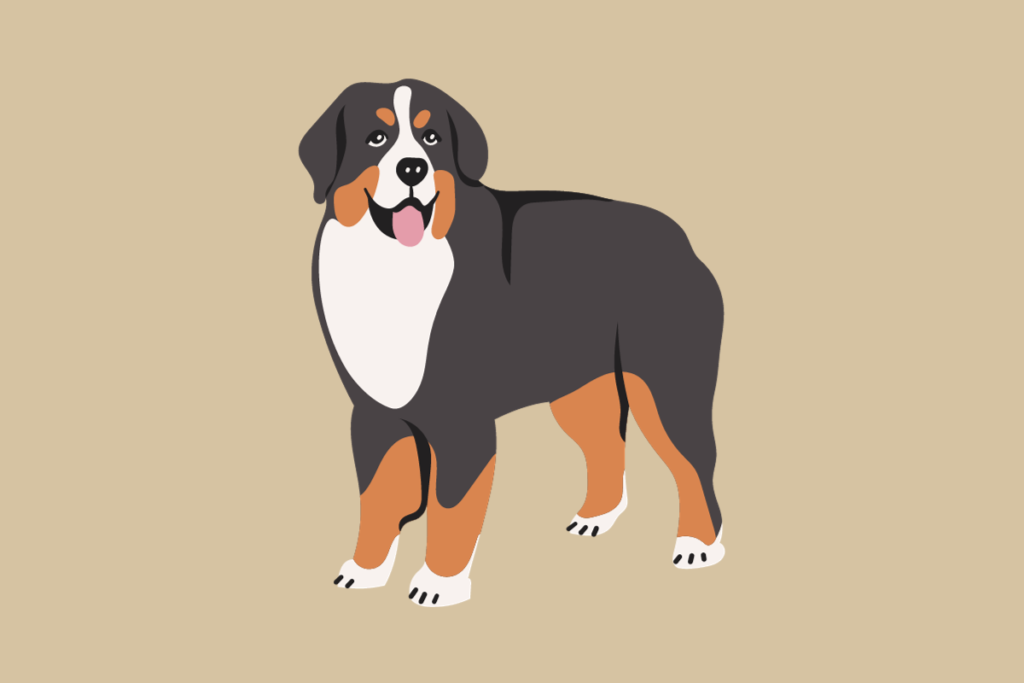
- The general appearance standard from the American Kennel Club for a Bernese Mountain Dog is as follows:
“The Bernese Mountain Dog is a striking, tri-colored, large dog. He is sturdy and balanced. He is intelligent, strong, and agile enough to do the draft and droving work for which he was used in the mountainous regions of his origin.”
- Breed standard height for adult males is 25 to 27 ½ inches (measured at the withers or shoulders) and weight is between 80 – 115 pounds. Adult females are between 23 to 26 inches and weigh between 70 – 95 pounds.
- The Bernese coat is tri-colored with a jet-black ground color and rich rust and white markings. Rust appears over each eye, on the cheeks, on each side of the chest, on all four legs, and under the tail. White appears as a blaze on the chest, as a muzzle band, on the tip of the tail, and on the feet.
- Although considered faults in the show ring, Bernese can sometimes have a “Swiss kiss” or a white mark on the back of their necks. Also, Berners may have blue eyes, which is an automatic disqualification in conformation.
Life With a Berner
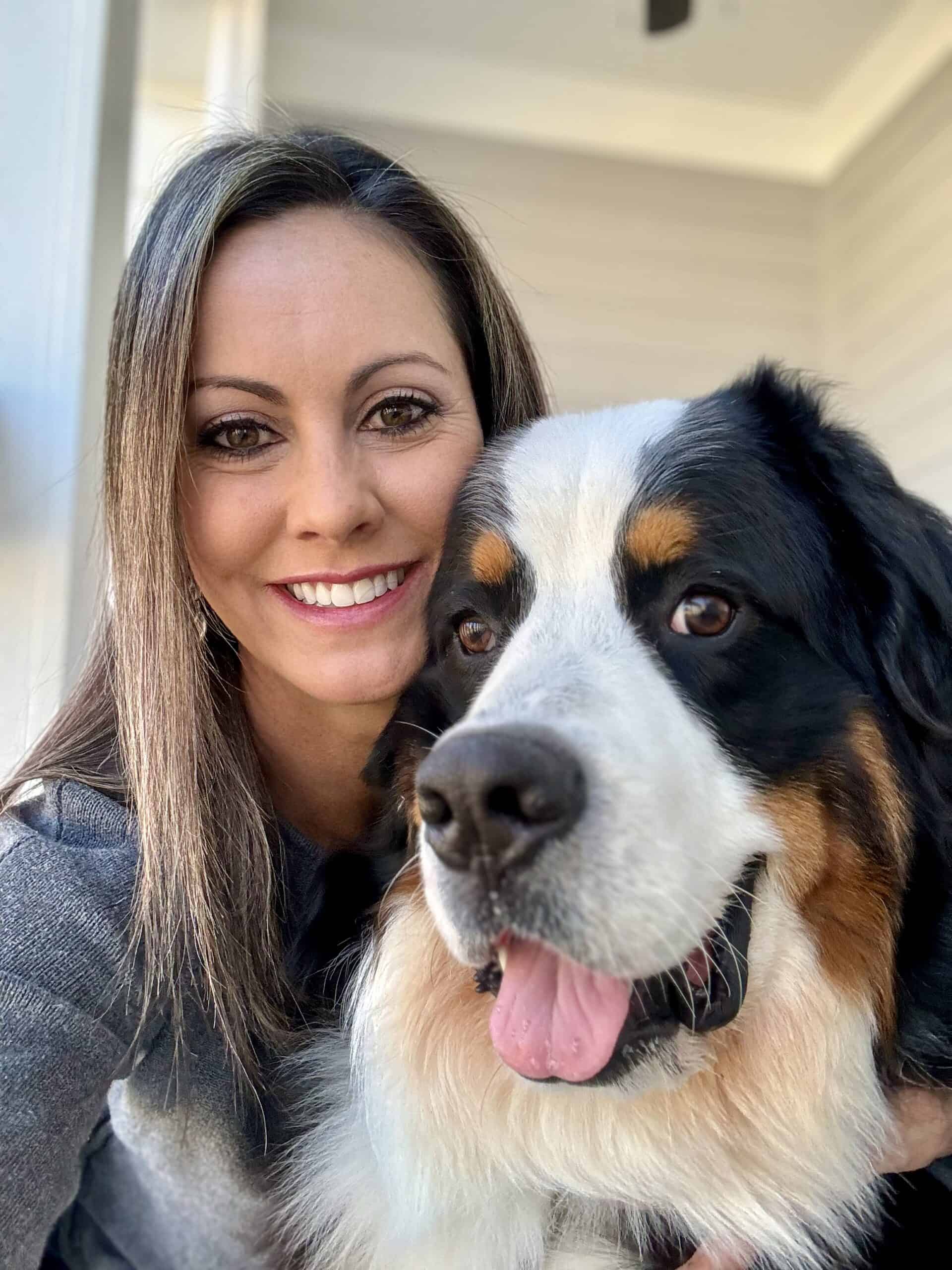
- Bernese Mountain Dogs shed extensively and are not a “hypoallergenic” breed. Berners have a thick double coat consisting of a shiny, moderately long top coat and a dense, wooly undercoat. They shed their coats once or twice a year over 3 – 6 weeks. Regular bathing and grooming are necessary.
- Berners were bred to work on Swiss Alpine meadows and farms and in snow. Their thick double coat protects from the winter cold and elements, and their black fur absorbs the sun’s heat.
- Their coat makes them incredibly heat intolerant and prone to heat stroke. Bernese should not live in climates over 70 Fahrenheit most of the time. Extreme care and consideration are necessary for Berners in warmer temperatures.
- Bernese Mountain Dogs have a good-natured, self-confident, and loving temperament. The AKC ranks Berners as 5 out of 5 for “affectionate with family,” “good with young children,” and “good with other dogs.”
- BMDs participate in many dog activities and sports, including obedience, rally, herding, agility, scent work, and tracking. In particular, they excel in drafting and carting competitions due to their working dog heritage. They can pull up to 10 times their body weight.
Bernese Mountain Dog Health
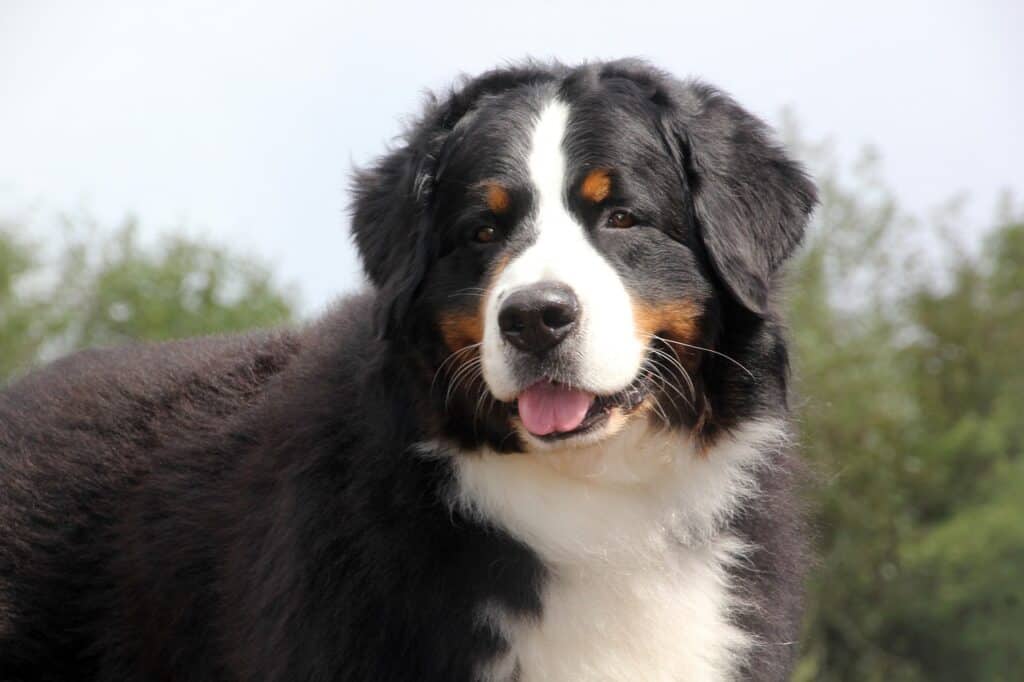
- There is a very famous Swiss saying about the Bernese Mountain Dog:
“3 years a young dog, 3 years a good dog, 3 years an old dog, all else is a gift from God”.
- Depending on your source, you will see the average Bernese lifespan range from 5 – 10 years. The most up-to-date information comes from the Berner-Garde database, which puts the current life expectancy at 8 years.
- One of the unfortunate facts about Bernese Mountain Dogs is they are plagued by many health conditions and inheritable diseases affecting longevity and quality of life. Sadly, the most common is cancer, which affects the breed at a higher rate than other breeds.
- Other common health issues affecting the breed include gastric torsion and volvulus (bloat), hip and elbow dysplasia, Von Willebrand’s Disease, autoimmune diseases, thyroid disorders, eye diseases, arthritis, allergies, degenerative myelopathy, and bowel disorders.
- Health tests and screenings are available for many health conditions limiting the length and quality of life in Bernese. Researching the health status of the pedigree is essential before purchasing a puppy from a breeder.
For help identifying an ethical preservation breeder, please read How to Find Bernese Mountain Dog Breeders: A Complete Guide.
Cost of a Bernese Puppy
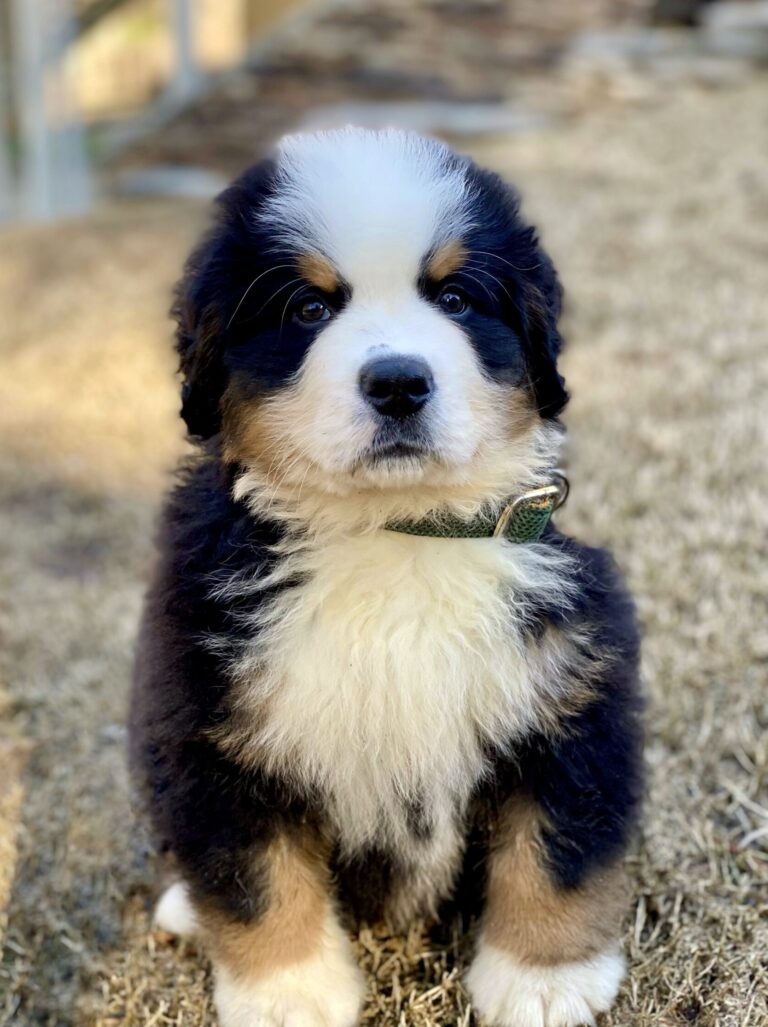
- The cost of a purebred Bernese Mountain Dog can vary greatly and does not necessarily indicate quality. Prices range from $1,200 to $10,000, and understanding what to look for in a reputable breed is paramount
- The ongoing cost of owning a Bernese will set you back many more times than the cost of a puppy, especially if your Berner has any health conditions.
For a full breakdown of the cost of owning a Bernese, check out our post How Much Do Bernese Mountain Dogs Cost?
Berner Resources

- The Berner-Garde Foundation is a charitable organization “dedicated to advancing the health of Bernese Mountain Dogs by fostering collaboration and providing resources to reduce genetic diseases”. They maintain a health and pedigree database of over 216,000 Bernese across a span of over 40 years.
- The best sources for breed-specific information about Bernese Mountain Dogs are:
- Whether purchasing a puppy from a breeder or adopting a Berner from a rescue, the best place to start your search is your regional Bernese Mountain Dog Club. In the United States, there are 28 regional clubs across the country.
For more information about how to adopt a Bernese Mountain Dog, check out our post, Bernese Mountain Dog Rescue: Everything You Need to Know.
- The Bernese Mountain Dog Club of America opposes crossbreeding the Bernese Mountain Dog to form Bernese mixes, such as the Berner-doodle. They state:
“The crossbred dogs can be prone to the genetic diseases of both breeds and offer none of the advantages that owning a purebred dog has to offer.”
Fun Facts About Bernese Mountain Dogs
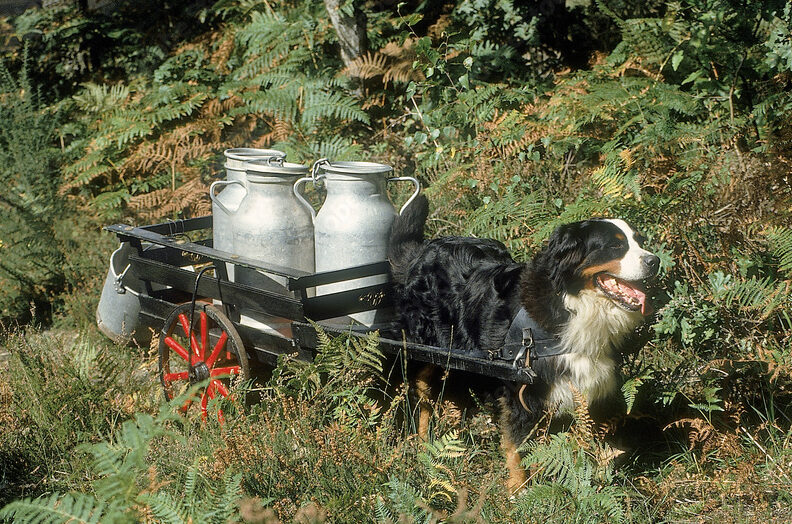
- The 10 most popular male and female Bernese Mountain Dog names, according to the Rover.com database, are:
| Male | Female |
|---|---|
| Bear | Bella |
| Moose | Luna |
| Winston | Bailey |
| Gus | Lucy |
| Max | Stella |
| Bernie | Zoe |
| Charlie | Daisy |
| Tucker | Rosie |
| Teddy | Willow |
| Murphy | Lily |
- An adorable song about the Bernese Mountain Dog by Nancy Simmonds sums up these precious pooches perfectly. It is a must-listen!
We hope you learned something new from this list of 30 Essential Facts About Bernese Mountain Dogs. As you can see, there is so much to love about these endearing Berner bears that we could talk about them for hours!
Let us know what additional questions you have about Bernese Mountain Dogs. We are happy to answer them!
Please Note: While the breed has much to offer as a companion dog, they can present challenges for some owners. Ensuring you are well-educated on both the positive and negative aspects will help determine if the breed is a good match for you, your family, and your lifestyle.
If you are considering adding a Berner to your family, be sure to read 8 Reasons a Bernese Mountain Dog May Not Be Right For You.
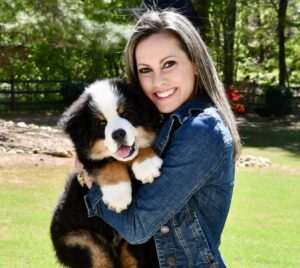
Katie Vincent is a dog lover, world traveler, and passionate creative who left a successful career in medical device sales to become a digital marketer, content creator, and writer. She has owned large-breed dogs for over 30 years, traveled to 42 countries, and taken 57 online courses. She now writes about all three at Riggie the Berner, Travel Planner Katie, and Creator Katie.


